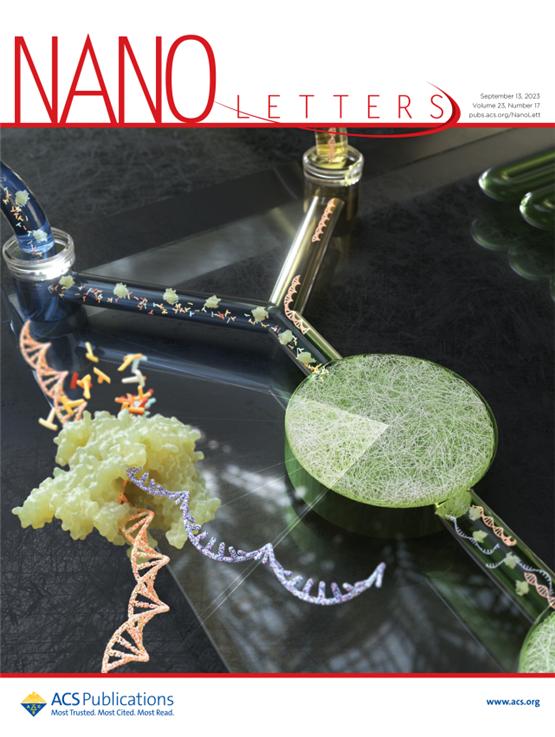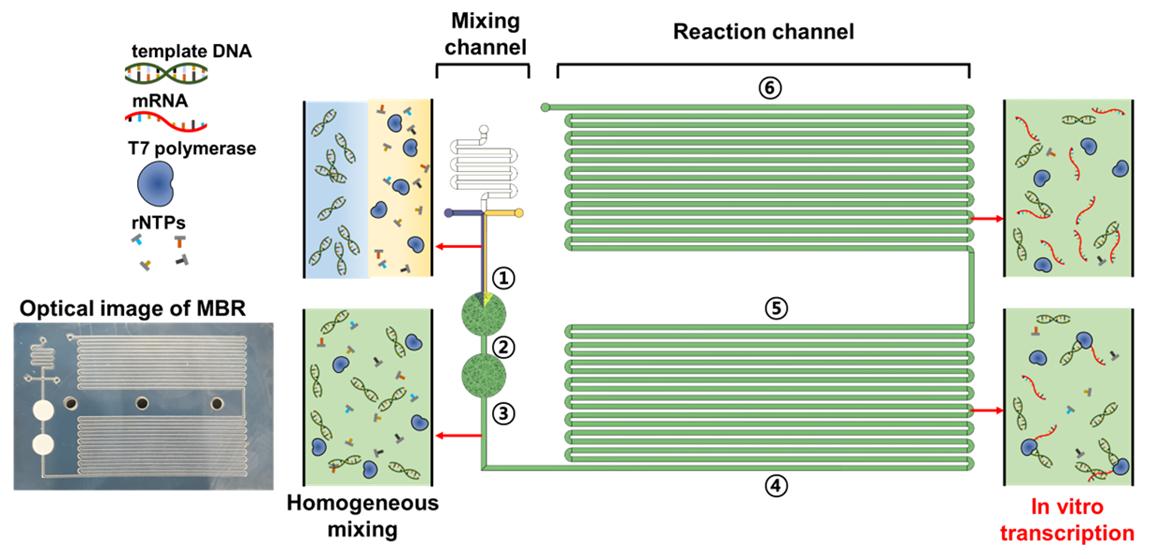-
Professor Choi Sungwook’s research team at Catholic University of Korea developed a microfluidic device for the...Author : 관리자Date : 2023.10.10Hit : 260
-
- Significantly enhances the efficiency of mRNA synthesis for use in therapeutic vaccines
- Expected to reduce production costs for core materials in developing vaccines and gene therapies
- Selected as the cover of the September issue of "Nano Letters (IF 10.8)," the prestigious international journal

*Photo Description: The September issue cover of the international journal "Nano Letters (IF 10.8)"
Professor Choi Sungwook's team (including doctoral candidate Choi Insung) from the Department of Biomedical Chemical Engineering at the Catholic University of Korea (President Won Jong-chul) has developed a microfluidic device that can significantly increase the production efficiency of mRNA, essential for new drug development such as vaccines and gene therapies.
Popularized during the COVID-19 pandemic, mRNA is a medium that carries genetic information for protein synthesis to cells, aiding the body in forming antibodies and building its immune system. As such, mRNA plays a crucial role in protein production within cells and is gaining attention as a next-generation advanced material in new drug development and gene therapy.
However, mRNA synthesis has been economically challenging due to discontinuous manufacturing processes and expensive raw materials. Traditional mRNA synthesis involved a batch process that required repeatedly injecting raw materials, completing the reaction, and re-injecting, making the process time-consuming.
In response, Professor Choi Sungwook's team at the Catholic University of Korea developed a microfluidic device capable of synthesizing mRNA continuously. The team injected mRNA synthesis raw materials into the microfluidic device with microfiber-sized channels, mixed them thoroughly, and successfully synthesized stable mRNA through a set reaction time. The characteristics of the microfluidic device developed by the research team are that it utilizes very small-scale fluid flow for precise control and efficient use of samples.
The research results showed that mRNA continuously synthesized using the developed microfluidic device demonstrated the same performance as mRNA synthesized through the traditional batch process in both in-vitro and in-vivo evaluations. It significantly reduced the downtime of the synthesis process, proving the microfluidic device to be an effective method for mRNA synthesis.
The research was conducted as part of the Mid-career Researcher Support Project by the National Research Foundation of Korea. The research results were recognized for their excellence by being selected for the cover of the September issue of the prestigious international journal "Nano Letters (IF 10.8)."
Professor Choi Sungwook of the Department of Biomedical Chemical Engineering at the Catholic University stated, "The microfluidic device we developed can significantly improve the economic efficiency of mRNA production, as it eliminates the repetitive start and stop procedures of the traditional batch process and greatly reduces downtime. This is expected to lower the production cost of mRNA vaccines, enabling more people to develop mRNA vaccines and related technologies easily. (End of Document)
# Additional Photos

* Image Description: Conceptual diagram of mRNA synthesis using a microfluidic device
- The materials required for mRNA synthesis are continuously injected into the microfluidic device, where they are fully mixed in the mixing section and then synthesized into mRNA continuously as they pass through the microchannels in the reaction section.
-
Attachment File

